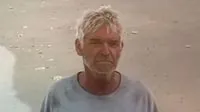4-Year-Old Defies Odds: Survives After Life Support Removal
A British judge expresses surprise as a young boy, previously on life support, makes unexpected progress. The child now lives at home, challenging medical predictions and legal decisions.

In a remarkable turn of events, a four-year-old boy has defied medical expectations by surviving and making progress after his life support was removed. This case, which has unfolded over the past nine months, highlights the complex interplay between medical prognosis, legal decisions, and the resilience of the human spirit.
Mr Justice Poole, presiding over the High Court, expressed his astonishment at the child's improvement. The High Court, the third highest court in England and Wales, had previously ruled that continuing life-sustaining ventilation was not in the child's best interests. This decision was based on medical advice, as the boy, referred to as NR, was born with severe brain abnormalities and his health was deteriorating.
Life support systems, which are used to maintain vital organ functions, were removed from NR following the court's decision. Typically, ventilation is a common form of life support for patients with respiratory failure. However, in a surprising turn of events, NR not only survived but has shown significant improvement.
The judge remarked, "It seems to me to be a wonderful surprise that NR has confounded expectations, that he no longer requires continuing invasive interventions and, in particular, that he has been able to return home to the loving care of his devoted parents." This statement underscores the unpredictable nature of medical outcomes and the potential for neuroplasticity, which refers to the brain's ability to reorganize itself by forming new neural connections.

While NR still faces significant challenges, his quality of life has markedly improved. Mr Justice Poole noted that the child can now be taken outside and enjoy simple pleasures like feeling the sun on his face and the wind in his hair. This progress stands in stark contrast to his condition in January 2024, when there was little evidence that he could derive pleasure from life beyond the consoling touch of his parents.
NR's mother described his improvement as a "new start," emphasizing that he deserves this chance at life. This perspective aligns with the principle of dignity in life and death, which is a key consideration in end-of-life care.
The case of NR brings to light the complexities surrounding end-of-life decisions in both medical and legal contexts. The Mental Capacity Act 2005 governs decision-making for people who lack capacity in England and Wales, while the United Nations Convention on the Rights of the Child influences legal decisions affecting minors. These frameworks, along with guidance from organizations like the Royal College of Paediatrics and Child Health, inform the delicate balance between medical ethics, parental rights, and the best interests of the child.
Mr Justice Poole clarified that "A decision to withdraw life-sustaining treatment is not a decision to bring about the death of a patient, but a decision that the continuation of the treatment is not in their best interests." This statement reflects the ongoing debate surrounding the concept of medical futility in end-of-life care discussions.
The case of NR is not isolated. Similar end-of-life cases have been brought before the High Court in recent years, including that of Indi Gregory, a critically ill baby whose life support was switched off in November 2023 after her family's appeals were exhausted through various legal channels, including the European Court of Human Rights.
As medical technology continues to advance, the ethical and legal landscape surrounding end-of-life decisions becomes increasingly complex. Bioethics committees often advise on these intricate medical-ethical issues, striving to balance the principles of beneficence and non-maleficence in healthcare.
NR's unexpected progress serves as a poignant reminder of the uncertainties in medicine and the potential for hope even in the most challenging circumstances. While his future remains uncertain, his story has already made a significant impact on discussions surrounding end-of-life care and the resilience of the human spirit.


































